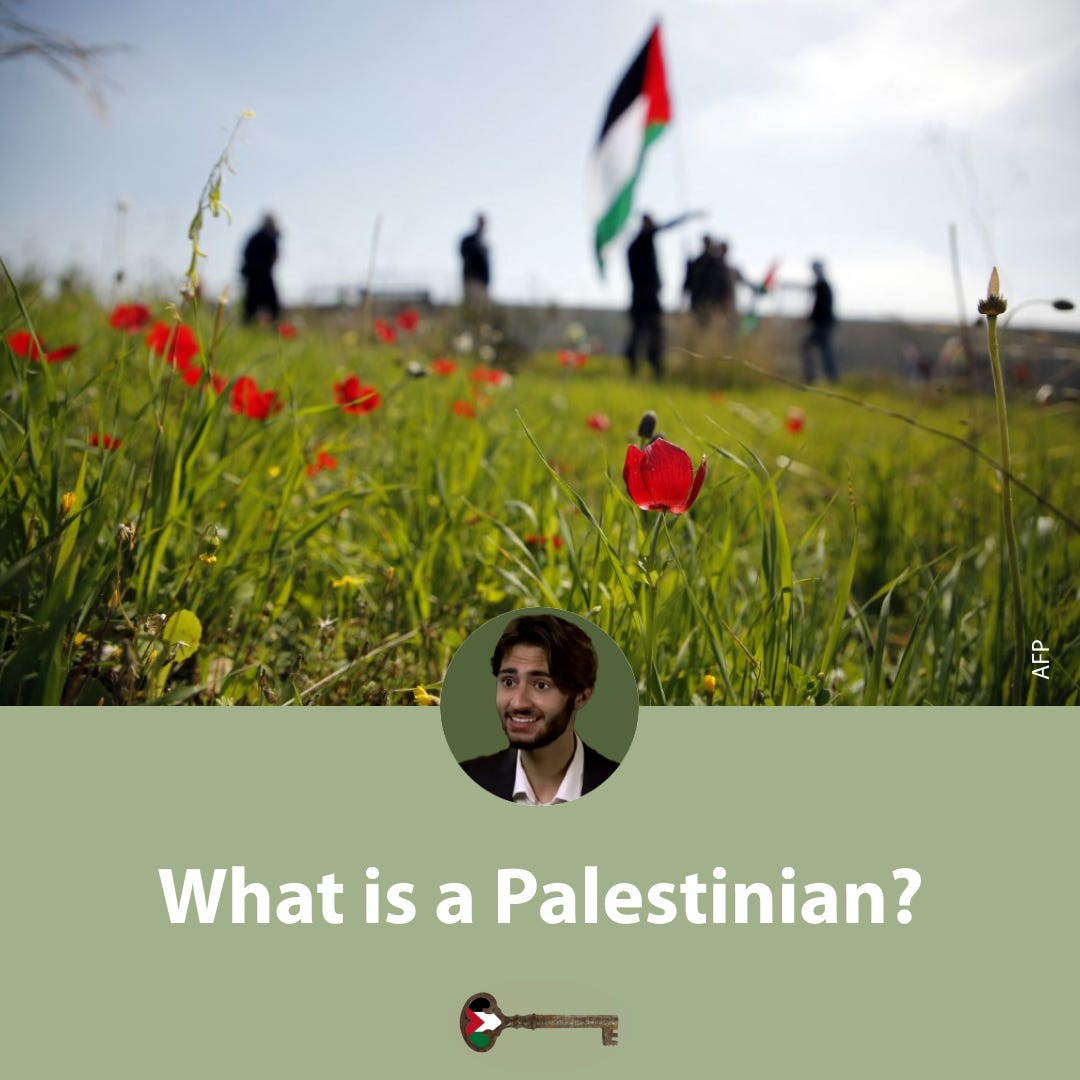What is a Palestinian?
Only when our historical ties are finally recognized, only then can we begin to see the prospect of peace fully play out.
By Jadd Hashem, Vice President of Atidna International
Ah, the age-old mantra that Zionists love to throw out: there’s no such thing as a Palestinian. The adage, popularized by Israeli Prime Minister Golda Meir, became a convenient tagline for pro-Israel advocates who refuse to acknowledge the Palestinian people’s right to their homeland.
The rationale behind the saying is relatively simple – because there has never been an independent Palestinian state, there can be no Palestinians. Yet, this sort of logic also conveniently leaves out the history of what Palestine is to begin with. See, when we Palestinians think of Palestine, we are not thinking of the de-facto “State of Palestine” that exists to most nations, encompassing the West Bank and Gaza Strip. We think of the historic region between the Jordan River and the Mediterranean Sea, which has historically been known as “Palestine,” dating back to the 12th century BC.
In my eyes, the definition of a Palestinian is very simple. Palestinians are those who have historically lived in the land of Palestine – a territory between the river and the sea. This means that Palestinians include not just Arabs but also the many Jewish individuals who have inhabited the land for centuries. I would go as far as to say that modern Jewish Israelis are merely just Jewish Palestinians since they currently call historic Palestine their home, even if they refuse to acknowledge the Palestinian title.
The truth is that the land between the Jordan River and the Mediterranean Sea has gone by many different names over time—Canaan, Palestine, Eretz Yisrael, The Holy Land, etc. Palestinians—who can trace their ancestry back to the very Canaanites who first roamed this land—don’t need a specific state to validate their identity.
A simple search online may have you believe that Palestinians are merely Arabs who came to the region around the 7th century. This, however, distorts the reality that Palestinians are an “Arabized” people, which is to say that the people of Palestine only became Arab after the influence of Arab culture, dress, language, and customs. Naturally, Palestinians nowadays are typically defined as Arab because they mostly speak Arabic – but the “Arab” identity ignores the indigenous connection that Palestinians also have to this land.
Historians and geneticists have repeatedly found links between modern Palestinians and Jews through common DNA and ancestry in the land of historic Palestine, proving how two people can both be indigenous to the same land. This dual narrative, however, is always going to be inconvenient to those who believe Palestinians are merely “Arab invaders” or that Jews are just “white Europeans.”
What also should be acknowledged is how the recent fad of nationalism has no actual historical basis. Over time, many individuals identified themselves with their religious beliefs or tribal connections before anything else. Hence, when the Ottoman Empire ruled over Palestine, many of the people would probably have considered themselves Muslim, Jewish, or Christian, before labeling themselves as Ottoman or Palestinian. The reality, however, is that we as humans, are always seeking to identify ourselves with what matters most to us. For Palestinians nowadays, that means identifying with the land their ancestors have historically roamed.
I primarily write this piece because I routinely become frustrated with those who wish to “deconstruct” the Palestinian narrative, as if we don’t belong in a land we have called home for generations. In my family, for example, I am a 38th-generation descendent of Hashim Ibn Abd Manaf (known typically as Hashem) – the great-grandfather of the Prophet Muhammad (pbuh). Hashem, who died around 497 AD in Gaza, is buried in the Gaza Strip where the Sayed al-Hashim Mosque stands. Since that point, my family has retained a continuous presence in the land of Palestine, yet somehow my claim to the territory is invalid?
Not only this, but ancestry tests have shown my indigenous roots to the Levant, encompassing Israel/Palestine, while also connecting me with the ancient Samaritan communities whose descendants now remain in cities like Nablus – the exact city where my father was born.
The point of all this? I wish to finally put an end to the supposed validity of a “fake” Palestinian identity, as repeated by Prime Minister Meir. I fully acknowledge and understand the Jewish (and, yes, Israeli) connection to this beautiful land. Yet, at the same time, we Palestinians demand the same recognition, as our roots remain strong in the land between the river to the sea. Only when our historical ties are finally recognized, only then can we begin to see the prospect of peace fully play out.




